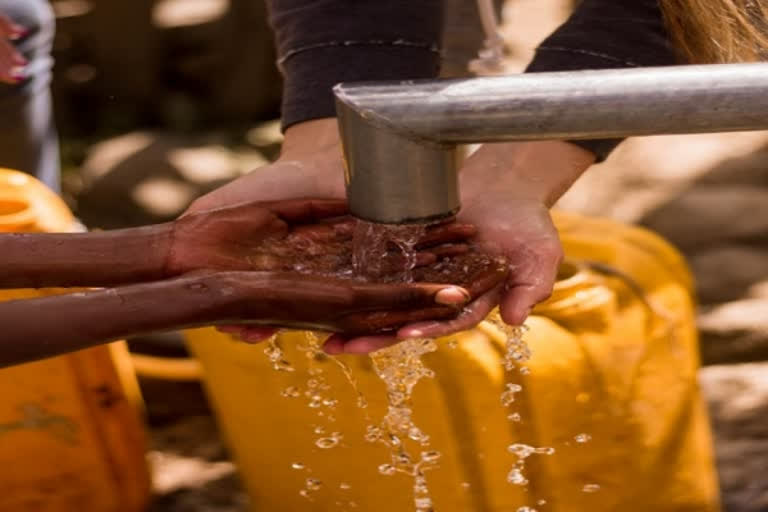Geneva (Switzerland): Around one in four people lacked safely managed drinking water in their homes in 2020 and nearly half the world's population lacked safely managed sanitation, said a joint report released by the World Health Organization (WHO) and the United Nations Children's Fund (UNICEF) on Thursday. COVID-19 has highlighted the urgent need to ensure everyone can access good hand hygiene. At the onset of the pandemic, 3 in 10 people worldwide could not wash their hands with soap and water within their homes, the report added.
"Handwashing is one of the most effective ways to prevent the spread of COVID-19 and other infectious diseases, yet millions of people across the world lack access to a reliable, safe supply of water," said WHO Director-General Tedros Adhanom Ghebreyesus. UNICEF Executive Director Henrietta Fore added that even before the pandemic, millions of children and families were suffering without clean water, safe sanitation, and a place to wash their hands.
According to the report, between 2016 and 2020, the global population with safely managed drinking water at home rose from 70 per cent to 74 per cent; safely managed sanitation services grew from 47 per cent to 54 per cent; and handwashing facilities with soap and water increased from 67 per cent to 71 per cent. It is not enough despite the progress, said the report, noting that Sub-Saharan Africa is experiencing the slowest rate of progress in the world.
Read: Amid competition with US, China building over 100 missile silos in western desert: Report
Highlighting an urgent need for investment, the report warned that billions of people across the world will be unable to access safely managed household drinking water, sanitation and hygiene services in 2030 unless the rate of progress quadruples.
"Investment in water, sanitation and hygiene must be a global priority if we are to end this pandemic and build more resilient health systems," said the WHO chief.
ANI



